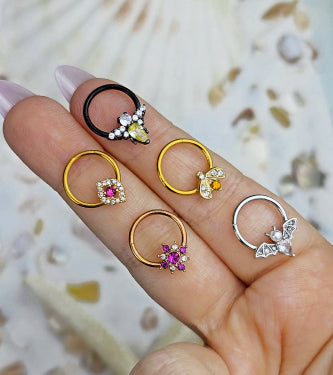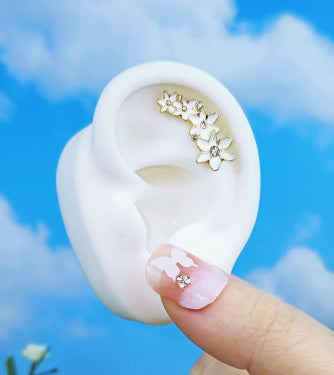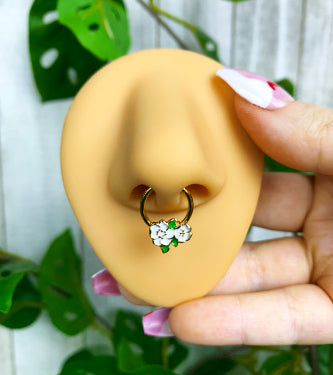Location: Through the bottom lip, normally in the center, but on an angle so that both ends are visible, one atop the lip and the other just underneath it.
Alternate Names: vertical labret piercing, inverse labret piercing, vertical lip piercing
Piercing: The piercing of a vertical labret is done much the same as a standard labret. The bottom lip will be thoroughly cleaned, a marking will be made to assure proper placement, and a pair of piercing clamps will be used. The lip will then be pulled away from the gums, and a hollow piercing needle of about 14 gauge will be pushed through, followed by the jewelry. To insure placement and safety, it’s recommended that a seasoned professional piercing perform this piercing.
Aftercare: As with other oral and lip piercings, sea salt soaks or sprays and mouthwash are recommended for aftercare of a vertical labret. Avoidance of certain foods, alcoholic beverages, and cigarette smoking may also be required or strongly encouraged. One of the advantages of a vertical labret over a standard labret is that because the jewelry doesn’t sit inside the mouth, the risk of associated dental issues is nearly eliminated.
Jewelry: Most vertical labrets will be initially pierced and worn with a small curved barbell, though occasionally a straight barbell or spike may be used, usually after healing is completed.
Prevalence: Although no specific studies have been completed, it is commonly asserted that women are more likely to get a vertical labret piercing than men. Oddly enough, the modern history of vertical lip piercings suggests that they first came to prominence as an imitation of regular labret piercings that had gone awry due to a piercer’s inexperience.



